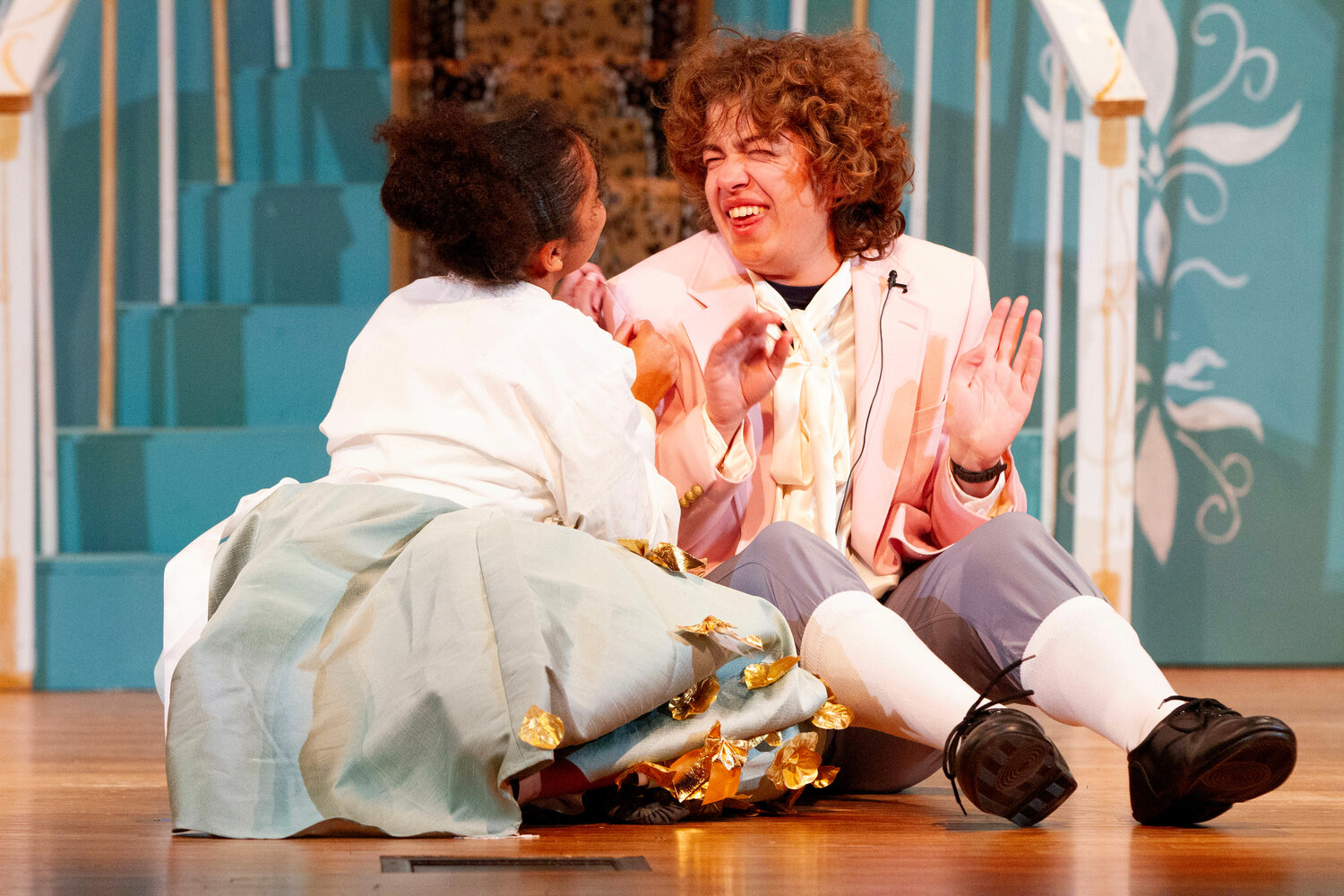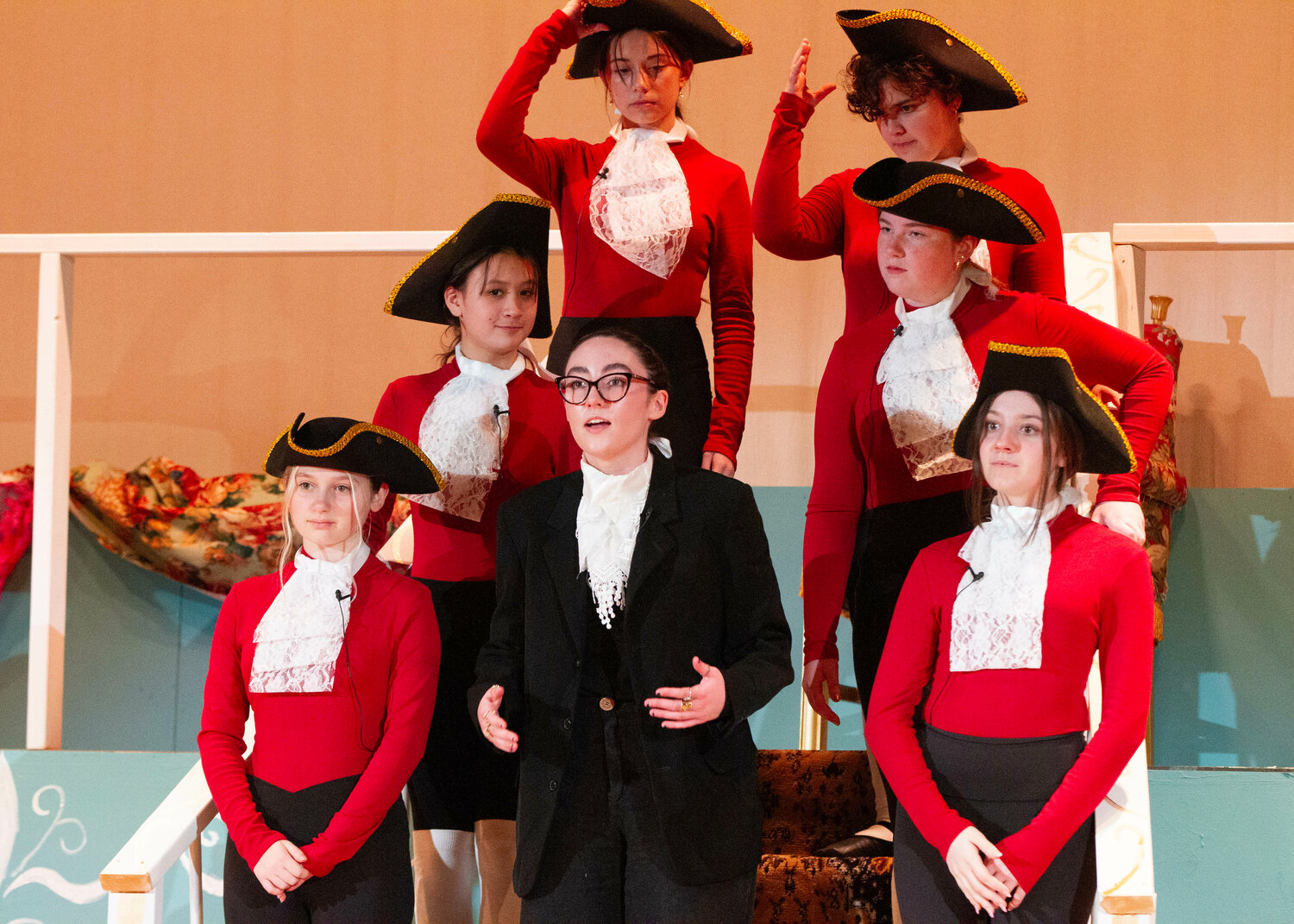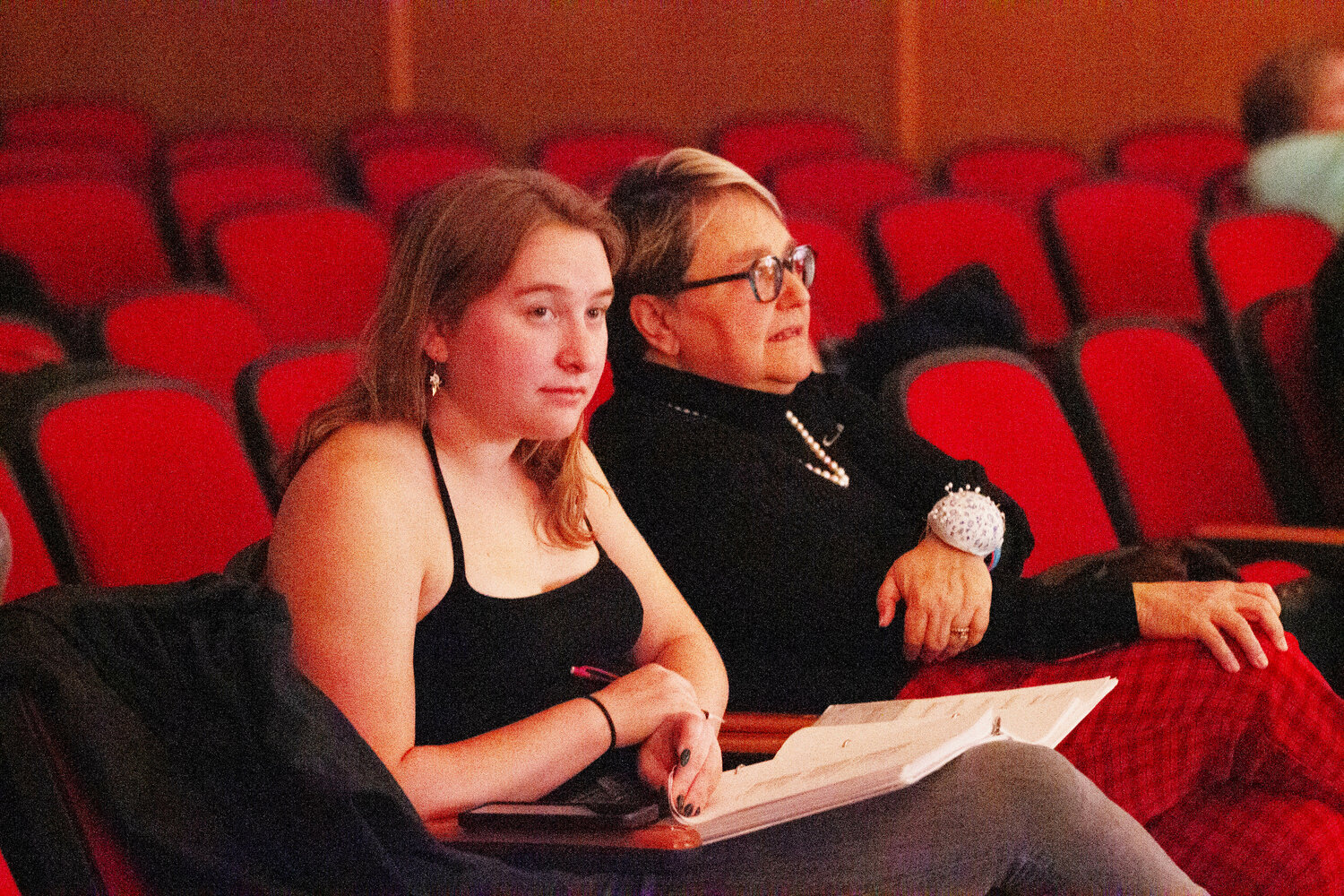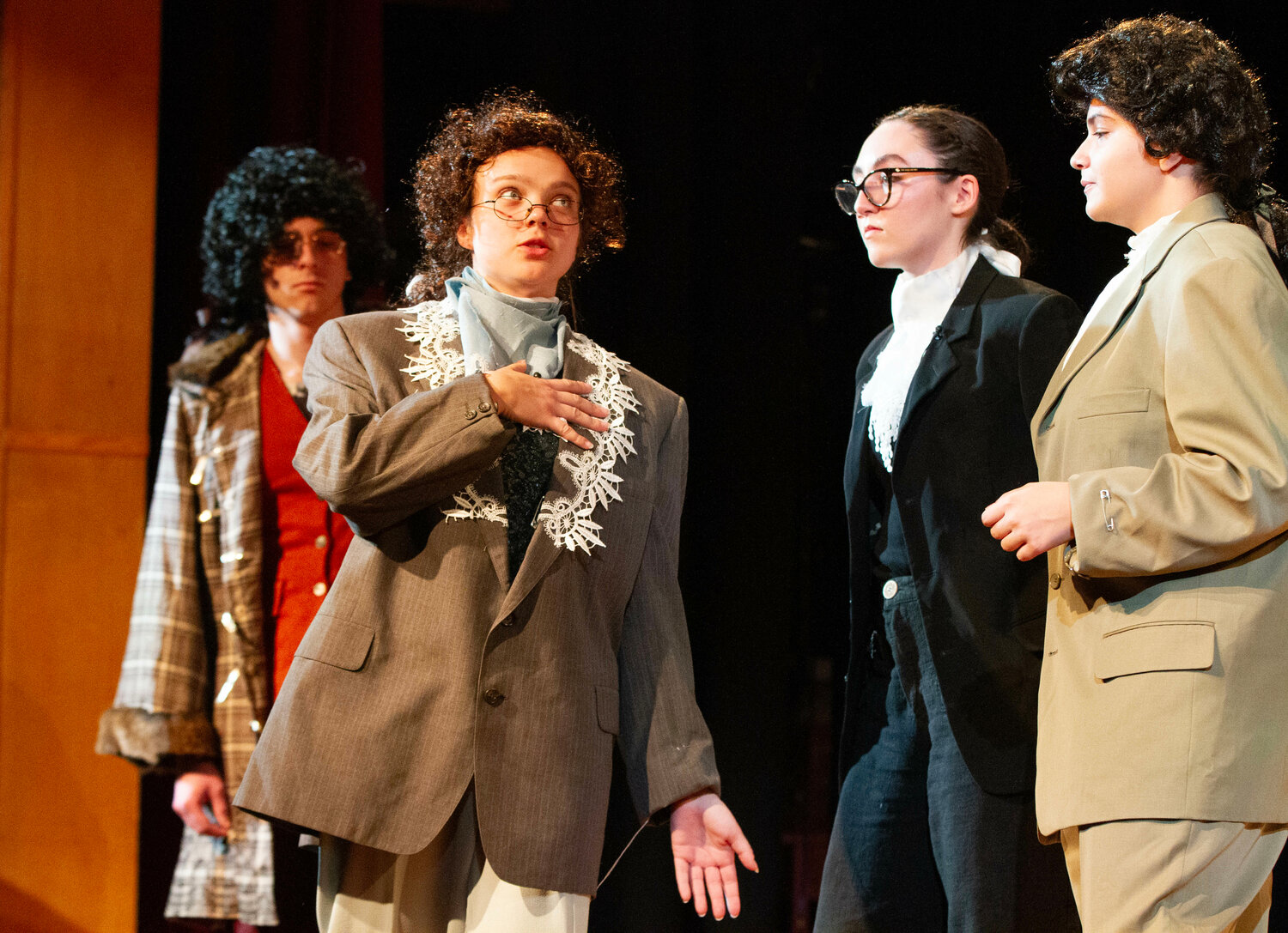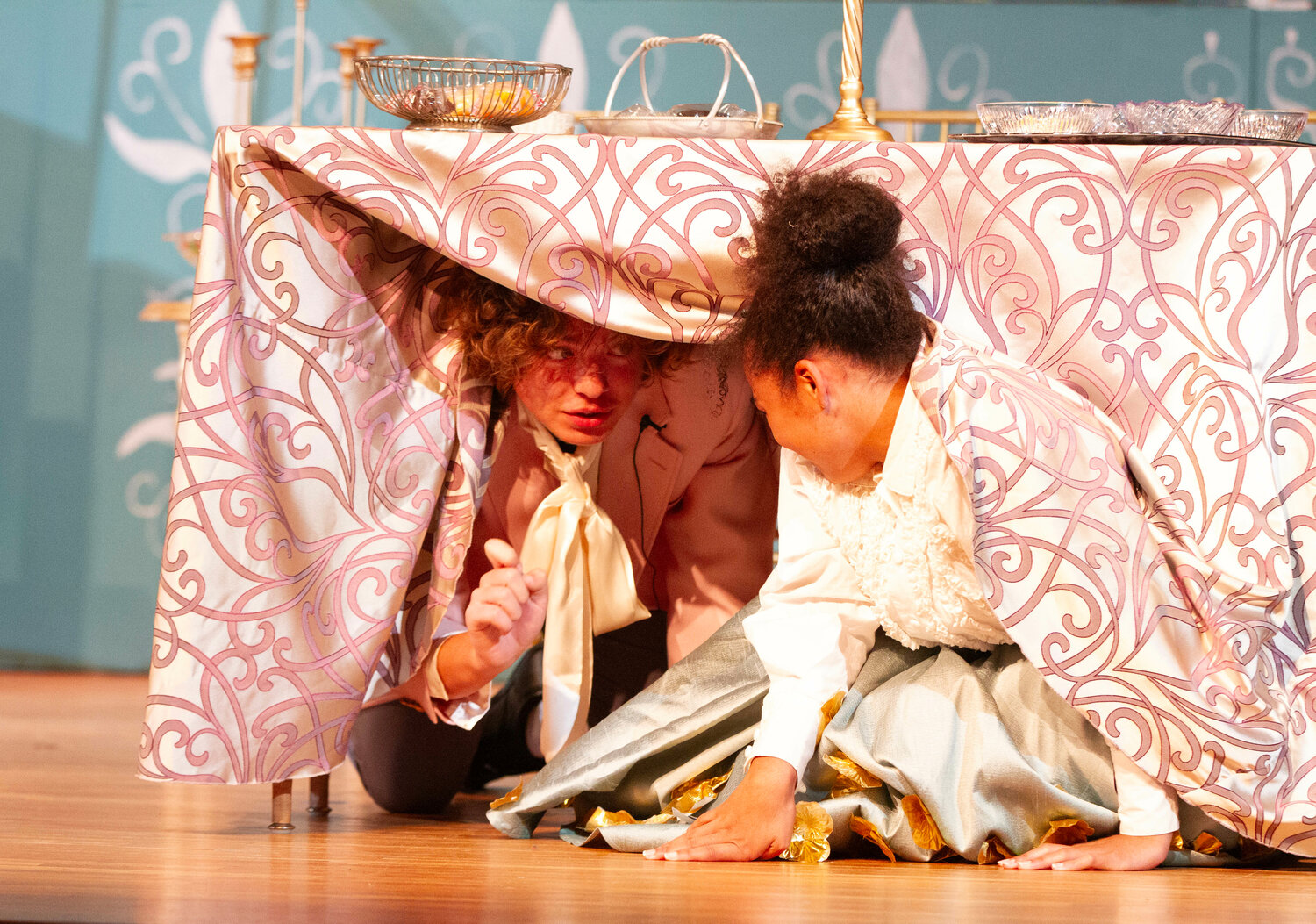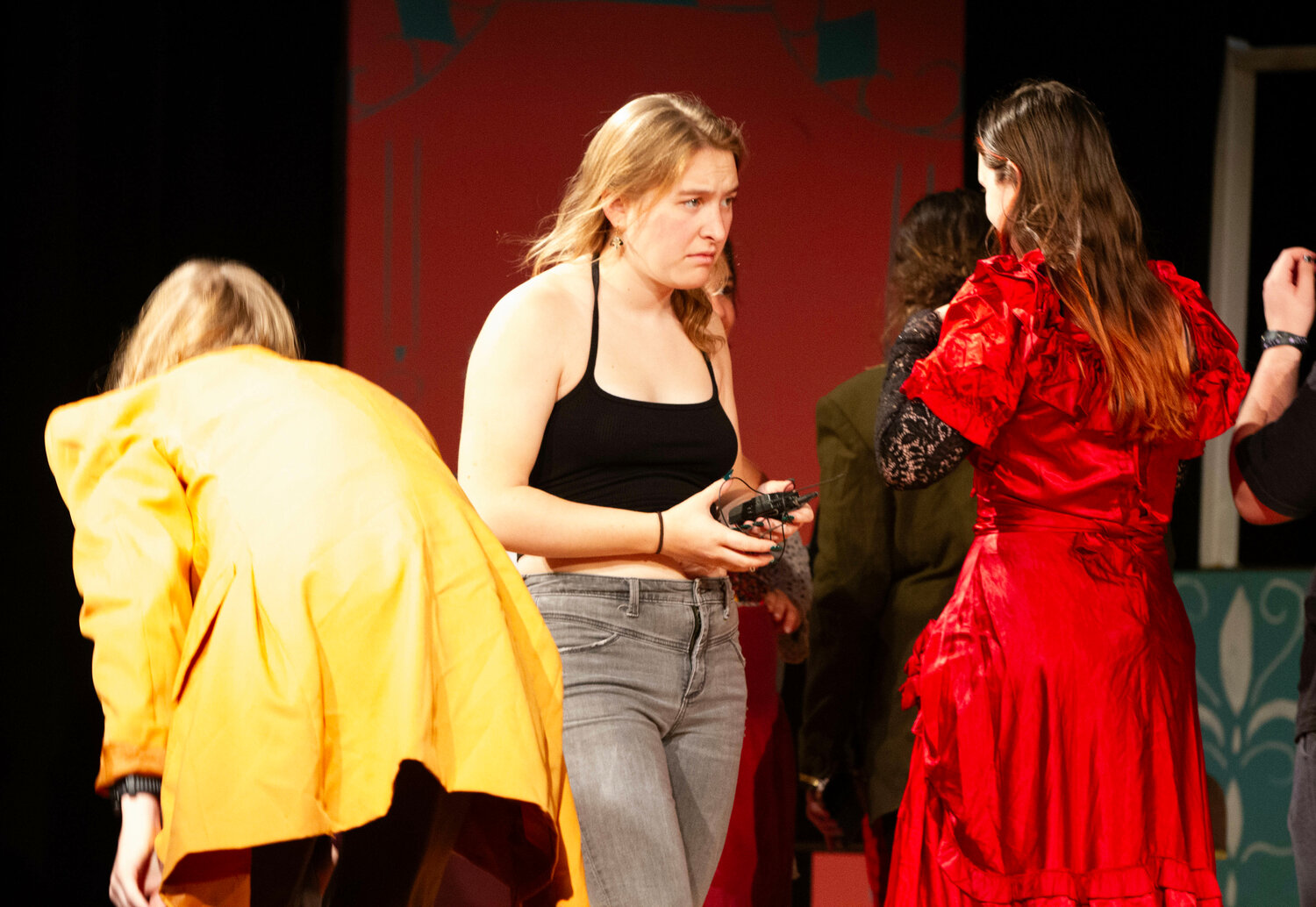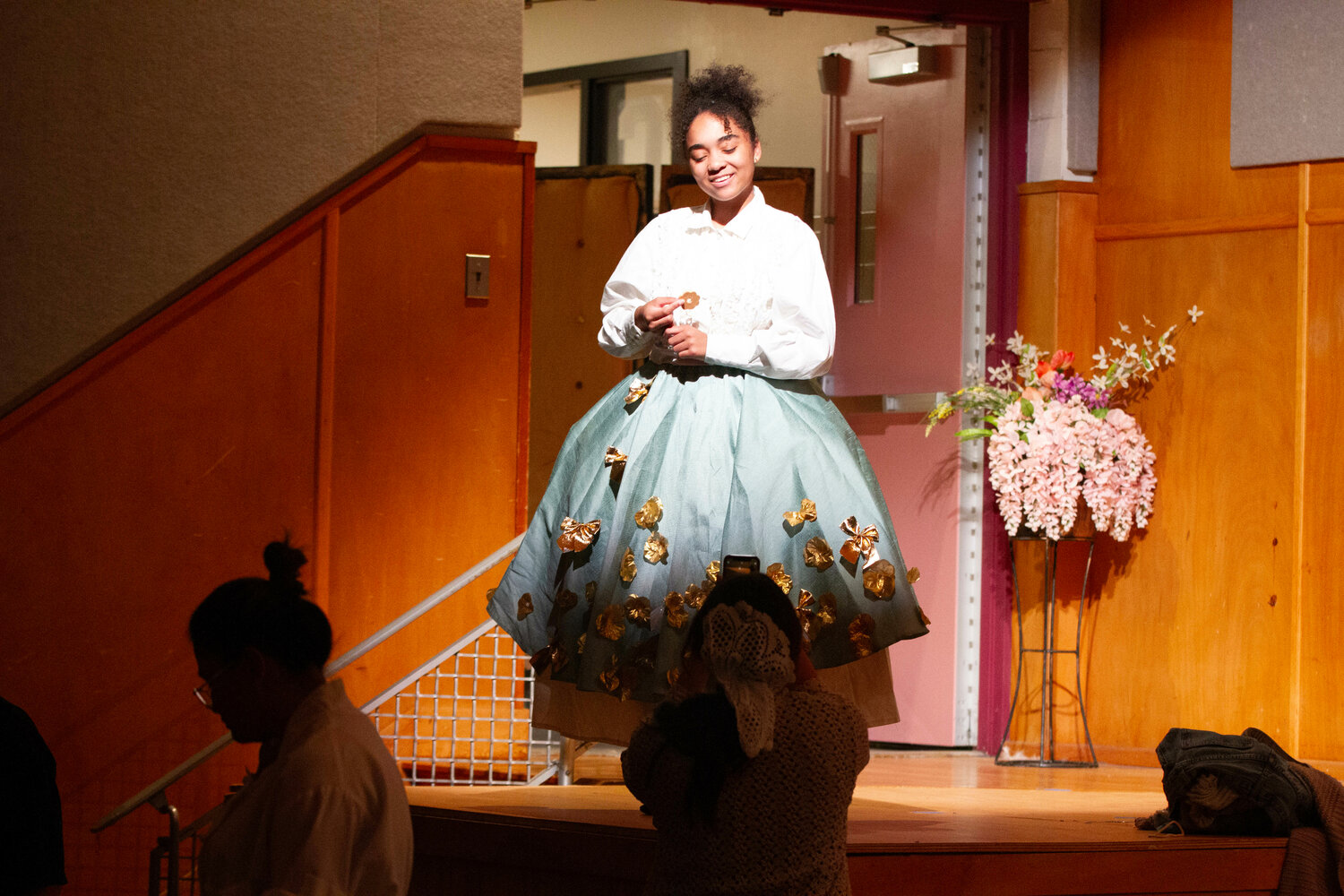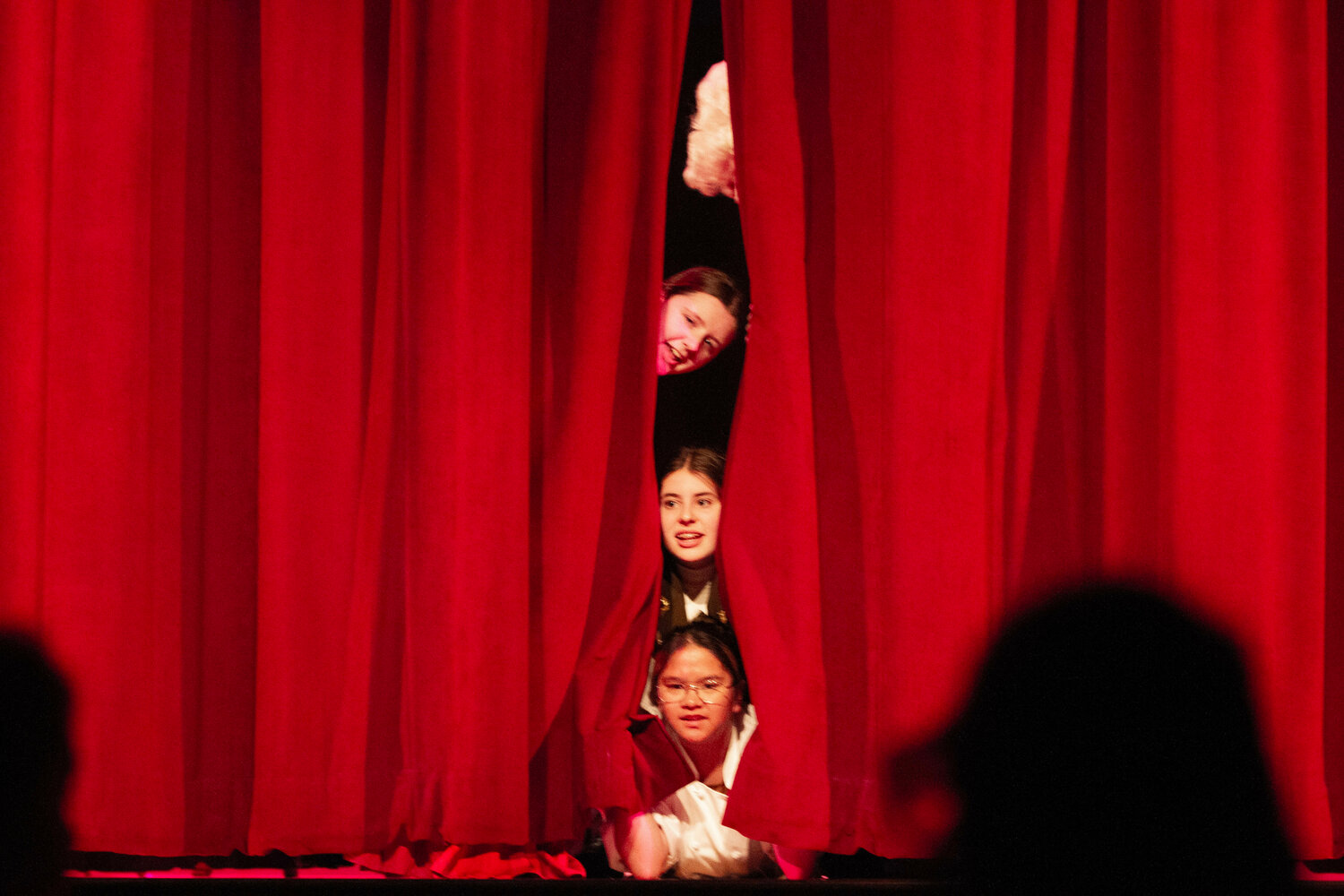- FRIDAY, JULY 26, 2024
At Portsmouth High: Counting down to opening night
A cast and crew of 50 are putting the finishing touches on ‘Amadeus’ for the PHS stage Nov. 16-18
PORTSMOUTH — It’s just two weeks before opening night of “Amadeus” and Dillion Fesmire, playing the title role, has asked for his next line one too many times.
This item is available in full to subscribers.
Please log in to continue |
Register to post eventsIf you'd like to post an event to our calendar, you can create a free account by clicking here. Note that free accounts do not have access to our subscriber-only content. |
Day pass subscribers
Are you a day pass subscriber who needs to log in? Click here to continue.
At Portsmouth High: Counting down to opening night
A cast and crew of 50 are putting the finishing touches on ‘Amadeus’ for the PHS stage Nov. 16-18

WHEN: 7 p.m. on Thursday, Friday and Saturday, Nov. 16-18
WHERE: Kate Grana Auditorium at Portsmouth High School, 120 Education Lane
COST: $12 for adults, $5 for students and seniors (cash or check at the door only)
MORE INFO: Presented by the PHS Drama Club by arrangement with Concord Theatricals on behalf of Samuel French, Inc.
PORTSMOUTH — It’s just two weeks before opening night of “Amadeus” and Dillion Fesmire, playing the title role, has asked for his next line one too many times.
During a dress rehearsal last Thursday at Portsmouth High School, Liz Lavery, the assistant director and a PHS senior, suggests that Fesmire hold the script as he prowls the stage. The actor initially resists, but after a few more flubs he finally acquiesces and grabs a copy from fellow thespian Kat Procopio.
Fesmire wasn’t the only student who didn’t have all the lines down, of course. The actors also ran into some issues with the different languages the script often requires (French, Italian, and German) as well as the complexity of mastering formal introductions of fraus, frauleins, counts and barons in 18th century Vienna. Not to mention the elaborate costumes, big sets, props, lighting and sound that all play a part in the success of a modern high school play.
There’s a lot that can go wrong, but even on such a tight schedule few members of the cast seemed concerned. They’ll be ready for Nov. 16-18, when the play comes to the stage in the Kate Grana Auditorium at PHS.
Just ask Fesmire, who says afterwards he’s not a bit nervous about the timeline. “It’s always, ‘We have a week left!’ and ‘Line, line, line.’ But on opening night it all comes together,” he says.
Spoken like a true veteran of the stage.
Still, Lavery is leaving nothing to chance. “I need you all to start showing up every day, because I will give you something to do. If you are not here, I will be sad — and mad,” she tells the cast and crew during the “notes” portion of the rehearsal, when actors receive feedback on their performances.
Here, Lavery is decisive in her input. She tells Eli Cabral, who plays Mozart’s fiancée Constanze Weber, that she needs to be more squirmy and resistant while playing a party game with guests. “Otherwise, there’s no reason for them to say, ‘Hold her!’” she reminds the young actor.
At another point, she suggests to Kasey Quinn, who plays pretty soprano Katharina Cavalier, one of Mozart’s romantic conquests, that she should react more strongly to the surprise news of the composer’s engagement to Constanze — and to hit him harder next time. “Do it every time like that; I was dying laughing,” says Lavery, who is assisting director Sheli Beck Silveria on “Amadeus” for her senior project.
“I’ve always loved plays and since sixth grade I wanted to do a play as my senior project, and I’ve always liked the idea of directing,” Lavery says. “Theater is a big passion of mine and I knew the senior project is all about something you’re passionate about, so this was the perfect outlet for that. I happened to be part of the drama club here, so I had the connections, I had the friends, and I was able to do this.”
Says Silveria: “Liz Lavery has outdone herself; I’m beyond proud of her. She takes this very seriously, and she’s had a lot going on with her personal life.”
Lavery’s mother, Erica, died on Sept. 28 after a long battle with cancer. She was 45. Lavery says her mother’s love for old movies, theater, language, history and literature certainly rubbed off on her.
“I’m a big fan of old Hollywood movies and I never would have known about them or be into them as much as I am now without her,” she says. “I love Doris Day; I grew up watching her movies because my mom grew up watching them at her grandmother’s house. She projected her love of Shakespeare onto me as well, and I’ve always loved plays because of that, too. Literature was always highly stressed at my house, so I think that’s why I’m where I am today.”
The production has been important for her, she says, because it keeps her busy and useful. “I guess in a way it’s therapeutic, but it gives me an outlet to think of something else. It’s nice to know it’s something she was passionate about as well, but it has really helped because I have been able to separate myself and get back on track so I’m not in a hole, essentially.”
Silveria says she’s given her assistant every opportunity to take a break, but Lavery has been at the school most every night until 8. “I said to her, ‘If you need at any time to just go eat ice cream by the ocean or something, just do it.’ She’s like, ‘No. Being here, being useful, is what’s best for me.’”
Lavery’s language and musical prowess — she wants to study French in college and is currently the drum line captain for the PHS Marching Band — has proven to be invaluable to the production. “She has a lot of skills that I don’t have,” Silveria says. “As assistant director, she has really filled some holes.”
Play, then a movie
Although “Amadeus” is perhaps best known as the 1984 movie starring Oscar-winner F. Murray Abraham as court composer Antonio Salieri and Tom Hulce as his idol and rival Wolfgang Amadeus Mozart, it actually started off as a play written by Peter Shaffer that was first performed in 1979. Silveria first saw the film when it came out, but later worked as a costume shop manager for a summer stock production in New Hampshire in 1990 or so. “Everything about it was so sensational,” she says.
Since the fictional play explores whether one mediocre composer (Salieri) did harm to his genius idol/rival (Mozart) out of jealousy, it was an ideal production for PHS students, she says.
“These students here at Portsmouth really like darker things. The kids are attracted to mystery, intrigue — tough subjects. They like to see things that are a real challenge, so we’ve done some real challenging productions over the past few years, directed by students. I personally love period pieces and introducing that to students, because it’s so different from their normal life.””
Fesmire says he loves playing Mozart, who in real life was indeed playful and foul-mouthed, judging by his letters.
“It’s a good opportunity to be something I’m not, and it’s really funny as he’s so extravagant,” says Fesmire. “He doesn’t seem like a real person, and the fact that he was is just — this guy existed! There was no technology to help him or anything, and he just made all this music. He was a prodigy. The personal side of his life is even crazier. He had a dirty, dirty mouth like a pirate.”
Silveria notes that in previous productions, Fesmire played Nick Bottom in “A Midsummer Night’s Dream” and the butler in “Clue.”
“He’s died in every show,” she jokes.
Theresa Katin, playing Salieri, has also enjoyed digging into her character. “Salieri is really interesting. He’s full of rage and a very intense guy. He’s this larger-than-life character, but he’s also relatable — that sense of jealousy is something everyone can relate to,” she says.
Besides Lavery, Silveria has several other invaluable crew members helping her put it all together — including her daughter Charlie. A member of the Class of 2019 at PHS, Charlie recently graduated from Rensselaer Polytechnic Institute, where she was active with the RPI Players. “She’s a real chip off my block,” Silveria says of her daughter, who’s the technical director on “Amadeus.”
“We have like 20 people on tech,” says Charlie, noting the PHS theater was fully upgraded with a new lighting and sound system under the Kate Grana Project. “It’s about a 50-person company right now between cast and crew. I remember our biggest show when I was in high school was maybe 25 or 30.”
Tight schedule
The biggest challenge, Charlie says, is the timeline. “We perform in two weeks, and we just finished the set yesterday. It’s getting everyone ready and also teaching everyone what they’re doing — making sure everyone’s doing things safely and learning something. I want kids to be able to take away something from their experience here, whether it’s using a staple gun or how to design some French 1700s-period wallpaper,” she says.
Like Charlie, stage manager Mell Benson is also concerned about the tight schedule, even if the actors aren’t. “The show’s earlier this year than it usually is, so it’s a little scary. We have a month less to rehearse than we usually do,” she says.
This is Benson’s fourth show as stage manager, and this production is unlike the others.
“A lot of how the characters work off each other is different,” she says. “We have a lot of lines in unison that is hard, and it’s an elaborate set that we can’t really change. There aren’t a lot of big set changes, so we have to make sure it’s obvious when we’re in a different place than we were before. We have to work a lot with lighting and sound to do that.”
Lavery does a lot of running around during rehearsal — literally sprinting to and from her seat to the lighting and sound booth and to the stage, either to check on a technical issue or to direct a cast member. She’s feeling a little pressure, but is also assured of the play’s success.
“This is a very big production. We have large sets, a lot of scenes, a lot of characters. It’s very time-consuming,” she says.
“I am confident it will come all together, though, because I’ve had this happen before where it feels like in the back of your mind that you won’t get it done in time. But you do.”
Keywords
Portsmouth High School, PHS Drama Club, Kate Grana, AmadeusOther items that may interest you

